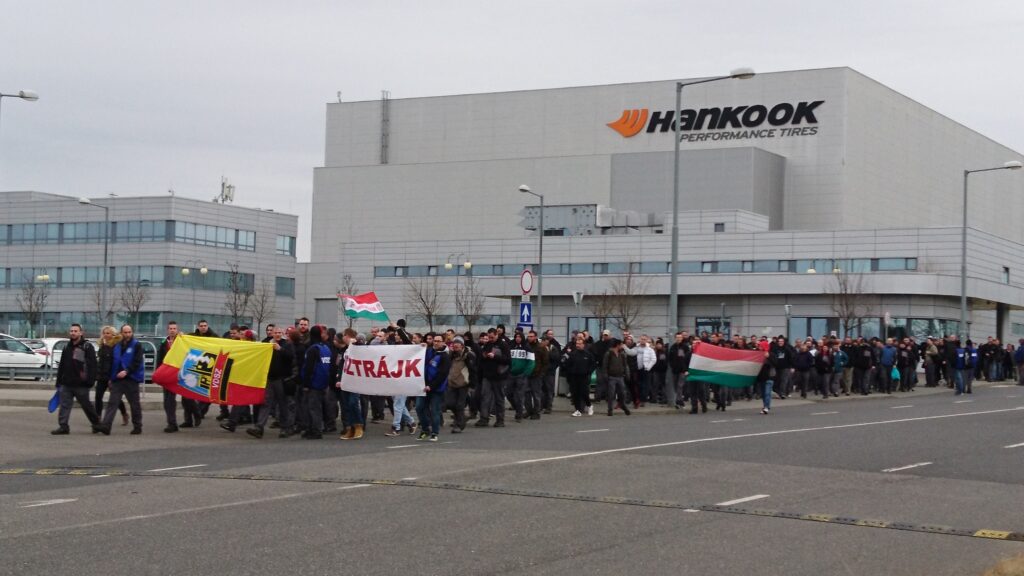20 March, 2019Some 1,700 workers at Hankook Tire in Hungary have been on strike for more than a week as the South Korean-owned company refuses to negotiate over a pay increase.
IndustriALL Global Union affiliate, the Federation of Chemical Workers of Hungary (VDSZ), which represents workers at Hankook’s Dunaújváros plant in central Hungary, say that 70 per cent of 2,400 shift workers have joined the indefinite strike that began on 12 March.
The union is ready to reach a compromise with a 14 per cent pay rise, but is frustrated at not being able to make the proposal at the bargaining table.
After a two-hour warning strike on 6 March, which had a 100 per cent participation by workers, the company paid a 13.6 per cent pay increase, but VDSZ says the rise does not benefit everyone equally.
For example, longer-serving employees are only receiving a 2 – 6 per cent increase, where as recently-hired workers are getting as much as a 22 per cent increase, says the union.
Salaries at the plant for shift workers are much lower than in other enterprises. Workers at a nearby factory earn around 300,000 forint (US$957) per month, compared to workers at Hankook Tire who average less than 200,000 forint (US$638) per month.
In the meantime, Hankook, which normally produces 45,000 tires per day at the Dunaújváros plant, has hired scab labour and harassed and intimidated workers to try and break the strike, says VDSZ. Since industrial action began, production has dropped to 10,000 tyres per day.
Union membership at the tire plant has grown by 1,000 workers in recent months.
Hankook has a history of anti-union hostility in Hungary, with several disputes escalating to the courts.
In a solidarity letter to VDSZ president, Tamas Szekely, IndustriALL’s general secretary, Valter Sanches, said:
“IndustriALL Global Union fully supports the struggle of VDSZ members at Hankook Tire Hungary Ltd’s factory in Dunaújváros to bring the company back to the negotiating table, and to put an end to violations of fundamental workers’ rights.”
